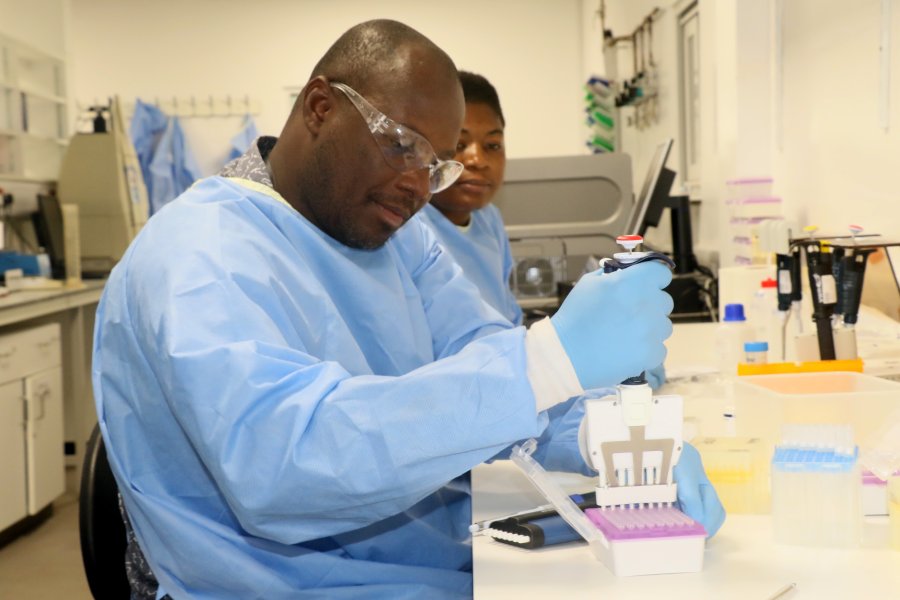
Delivered by Eric Vickers Neubauers from the group of Prof Bryan Greenhouse at UCSF, the training provided hands-on laboratory as well as data analysis and bioinformatics sessions. It is expected to build upon existing expertise on the amplicon toolkit developed by the MalariaGEN program at the Wellcome Sanger Institute, strengthening capacity for malaria molecular surveillance in West Africa across several projects (EGSAT, GSM, WANETAM) led by Professor Alfred Amambua-Ngwa, Professor of Genetic Epidemiology at LSHTM.
According to Dr Dominic S.Y. Amuzu one of the trainees, the Paragon Genomics CleanPlex Technology allows exploration of genetic diversity and evolution of the malaria parasites. He highlighted that the technology also supports identification of drug resistance markers and potential vaccine targets which will address the challenge of the clusters of highly “A-T” rich regions in the genome of the parasite.
“The use of this technology will accelerate the translation of genomic data to support policy and approaches on malaria therapeutic interventions, and the development of new strategies to control the disease as it epidemiology changes in Africa and beyond” he added.
For Blessed Etoketim, Scientific Officer at MRCG at LSHTM and a trainee, leveraging the features of the Illumina NGS platform is time- and labour-saving, and highly cost-effective. Thus, it will enable researchers and assay developers to uncover malaria parasite diversity even in resource limited settings.
“Participating in this training has now equipped me with the skills to contribute more significantly towards genomics-related research at MRC Unit The Gambia and will also be relevant to my intended postgraduate research. I have gained competence in advanced lab skills required for Illumina NGS library preparation” he added.
The training is part of activities of the West African Network for Tuberculosis, AIDS and Malaria (WANETAM), as part of its efforts to promote capacity development in scientific research on endemic and infectious diseases in the sub-region.
LSHTM's short courses provide opportunities to study specialised topics across a broad range of public and global health fields. From AMR to vaccines, travel medicine to clinical trials, and modelling to malaria, refresh your skills and join one of our short courses today.
